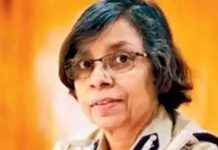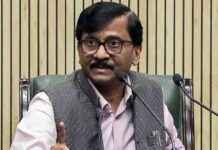Changes in NEET-PG Pattern Prompt SC Inquiry: Centre, NBE Response Needed
The Supreme Court has raised concerns over the recent changes to the NEET-PG 2024 pattern by the National Board of Education, calling it “very unusual” and warning of potential student distress. The bench led by Chief Justice DY Chandrachud has requested responses from the National Board of Education (NBE) and the Centre within a week, following pleas from students represented by senior advocate Vibha Datta Makhija and lawyer Tanvi Dubey. The case has been listed for a hearing on September 27.
The issue at hand involves last-minute alterations to the examination pattern, the normalization of marks, disclosure of answer keys, and question papers for the National Eligibility cum Entrance Test for Post-Graduation (NEET-PG), which took place on August 11. Makhija highlighted the lack of clear rules and regulations, noting that the exam structure was unexpectedly divided into two parts just three days before the test.
The absence of a standardized approach and the potential for arbitrary modifications to the exam process have raised significant concerns among students and their representatives. The plea filed by Ishika Jain and others seeks transparency in the selection process through the disclosure of answer keys, question papers, and standardization of marks. NEET-PG is a critical examination for admission into postgraduate medical courses following MBBS and BDS degrees.
The results of the NEET-PG 2024 exam, announced by the NBE on August 23, have sparked unease among students due to unexpectedly low rankings. Many students have raised suspicions regarding discrepancies in the ranking process after comparing their scores with unofficial answer keys. They have urged the NBE to release official answer keys and establish a grievance portal to address these issues effectively.
During the court proceedings, Makhija emphasized that the NBE failed to provide question papers or answer keys, hindering candidates’ ability to evaluate their performance accurately. The lack of transparency in the evaluation process has further fueled concerns among students and their representatives.
In response to the concerns raised by the students’ representatives, the counsel for the NBE defended the changes, stating that they were not unusual. However, Chief Justice Chandrachud expressed his unease over the last-minute alterations to the exam pattern, emphasizing the potential impact on students’ mental well-being. The court has scheduled further hearings for September 27, taking into account the upcoming counseling sessions for postgraduate course admissions.
As the case unfolds, it is evident that the issues surrounding the NEET-PG 2024 examination go beyond mere procedural changes. The lack of transparency, clarity, and consistency in the examination process has raised significant questions regarding the fairness and integrity of the evaluation system. Students, who invest considerable time and effort in preparing for these exams, deserve a level playing field and a transparent assessment process.
Moving forward, it is essential for the NBE and the Centre to address the concerns raised by the students and their representatives promptly. Clear guidelines, standardized procedures, and timely disclosure of information are vital to ensuring a fair and transparent examination process. The credibility of the NEET-PG exam, a gateway to postgraduate medical education, must be upheld to maintain trust and confidence among students and stakeholders.
In conclusion, the Supreme Court’s inquiry into the changes in the NEET-PG 2024 pattern highlights the need for accountability, transparency, and fairness in the examination process. The responses from the NBE and the Centre will be crucial in addressing the concerns raised by students and ensuring a level playing field for all aspiring medical professionals. The outcomes of this case will have far-reaching implications for the future of medical education in India, emphasizing the importance of upholding integrity and ethics in the evaluation system.




















